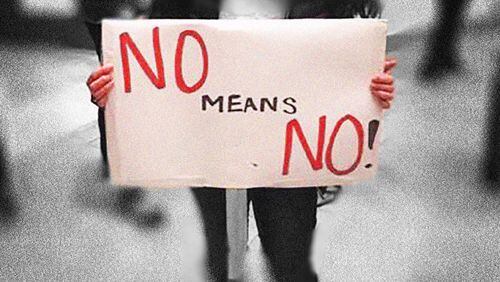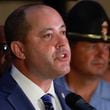New policies on campus sexual misconduct under consideration by Secretary of Education Betsy DeVos target the criticism that the disciplinary procedures now used by colleges protect victims but ignore the rights of the accused.
That concern led state Rep. Earl Ehrhart, R-Powder Springs, to propose legislation in 2017 that would prevent Georgia campuses from investigating sexual misconduct claims unless police were also involved. When he introduced his bill, Ehrhart told The Atlanta Journal-Constitution, "I want to treat these crimes with the seriousness they deserve. But I am not going to sacrifice due process to get there."
Many victims of sexual assault never report the crime to police but instead go to their colleges where the burden of proof is lower and privacy protections higher. Schools conduct their own disciplinary procedures -- operating under federal Title IX guidelines -- that may expel a student found responsible even if law enforcement never becomes involved.
As reported in today’s print AJC, DeVos and her U.S. Department of Education are considering new policies on campus sexual misconduct “that would bolster the rights of students accused of assault, harassment or rape, lessen liability for institutions of higher education and push schools to offer more support for victims” and “narrow the definition of sexual harassment, holding schools accountable only for formal complaints filed through proper authorities and for conduct said to have occurred on their campuses. They would also establish a higher legal standard to determine whether schools improperly addressed complaints.”
Ehrhart argued there ought to be more protections for those falsely accused of sexual assault. Georgia Tech has been sued by students who contend they were unfairly expelled from the school after being accused of sexual assault. The students claimed student disciplinary procedures denied them a fair hearing.
This is a contentious and complex issue, which explains the ongoing debate and the failure to yet find consensus. A series of AJC articles found many sexual assault cases weren't thoroughly investigated, and the review process confused accusers, the accused and parents. The investigation found prosecutors seldom bring charges in campus rape cases.
But the DeVos proposals are raising concerns.
“Of course, due process is important, but the evidence of the last several decades demonstrates that we need stronger protections for survivors, not for the accused perpetrators or the institutions that may be complicit in shielding them,” said Randi Weingarten, president of the American Federation of Teachers. “Nearly one-quarter of college women and 15 percent of college men are victims of forced sex during their time in college, yet more than 90 percent of these incidents go unreported. The evidentiary standard described in this proposal would chill that reporting even further by allowing schools to choose a standard that stacks the deck against survivors. It should be easier to bring these cases to justice, not harder. Strengthening protections for alleged perpetrators of harassment, and for the institutions they attend, only enables further harassment, which in turn disrupts and undermines the education process.”
The hearings on Ehrhart's bill drew opponents who testified that requiring assaults be reported to police would silence victims. The bill did not pass in 2017 and was not taken up this year.
Last year, DeVos criticized an Obama administration guidance letter on the responsibilities of schools and colleges in sexual misconduct, saying, "This is an issue we're not getting right...Survivors, victims of a lack of due process and campus administrators have all told me that the current approach does a disservice to everyone involved."
She maintained the 2011 directive set standards of proof that were too low and instead advised colleges to require a "clear and convincing standard" of proof before a student was judged responsible.
Your thoughts?
About the Author







